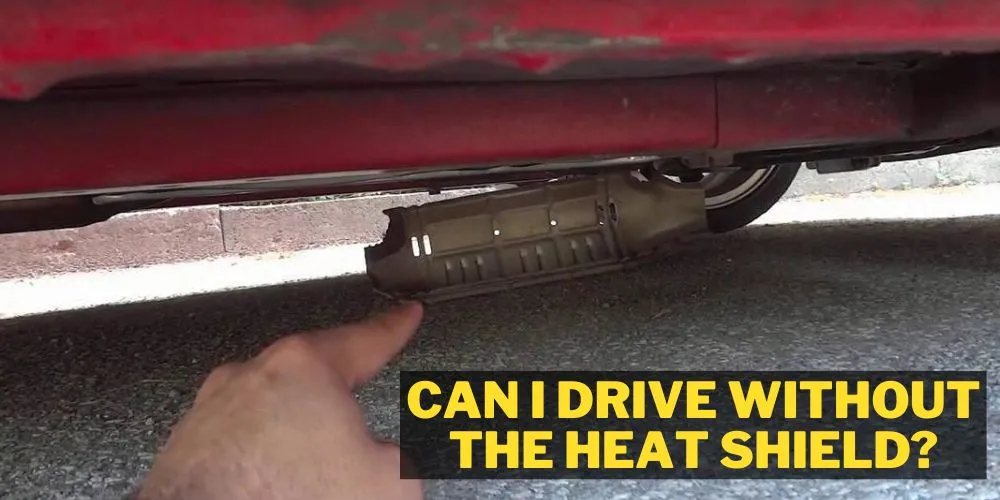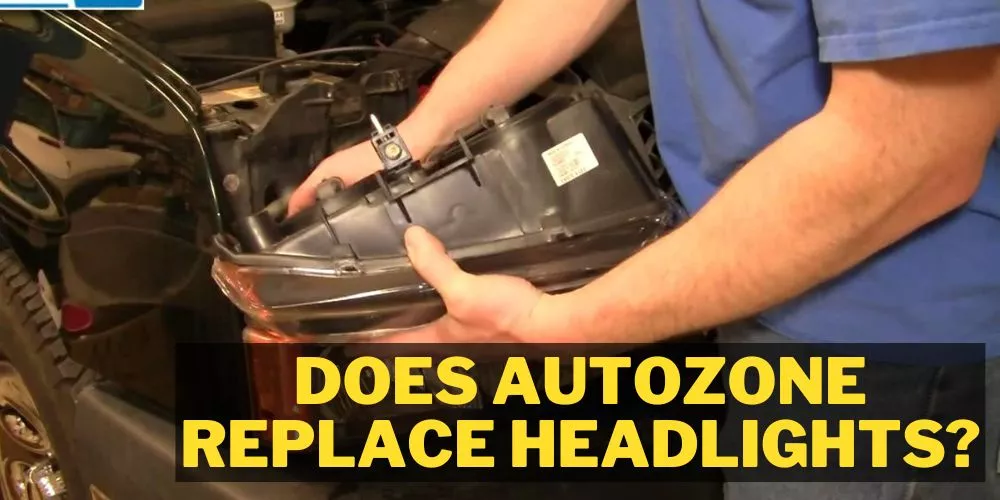You’re running late for an important appointment, you hop in your car, put it in reverse, and suddenly, an unpleasant trembling permeates the vehicle.
You might wonder, what’s going on? As it turns out, many drivers find themselves in this very situation that your car shakes when reversing.
Car shaking in reverse is an all-too-common issue that has a wide-ranging impact on the driving experience, from general discomfort to potential long-term damage to your vehicle.

In this article, we’ll delve into the primary causes of this concern, such as:
- Mechanical problems
- Worn components
- Poor driving habits
Contents
Why Car shakes when reversing? (My Analysis)
Taking these factors into consideration and confronting them head-on, you can proactively mitigate the instances of car shaking when reversing, paving the way for a more enjoyable and worry-free driving experience.
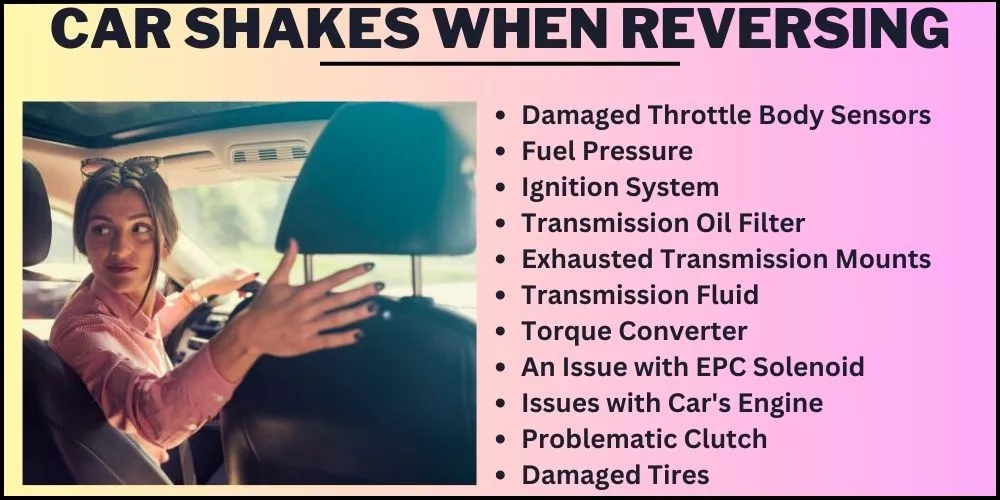
Damaged Throttle Body Sensors: A Telling Cause
The Problem: Damaged throttle body sensors play a significant role in causing car shakes when reversing. The throttle body is responsible for controlling the airflow to the engine, while sensors monitor and regulate the amount of air that enters the combustion chamber.
When these sensors are damaged or fail, they can send improper signals to the engine control unit, causing your car to shake while reversing.
The Solution: To address this issue, you should inspect the throttle body and sensors for signs of wear or damage. If you detect any issues, it’s essential to have them replaced as soon as possible to prevent further problems.
Regular maintenance and inspection of these components will help ensure they function correctly and reduce the chances of car shaking in reverse due to damaged throttle body sensors.
Fuel Pressure: Finding the Right Balance
The Problem: Fuel pressure is another critical aspect worth considering when it comes to car shaking in reverse. Optimal fuel pressure is necessary for the smooth functioning of the engine, and inadequate pressure can lead to irregular combustion, causing the car to shake.
High fuel pressure can also contribute to inefficient burning of fuel and subsequently lead to shaking.
The Solution: To remedy fuel pressure-related issues, we recommend having your fuel system checked and maintained regularly. This includes inspecting the fuel pump, fuel filter, and fuel pressure regulator.
Ensuring that your vehicle’s fuel pressure is balanced will contribute to a smoother, shake-free reverse.
Ignition System: A Spark of Trouble
The Problem: The ignition system serves as the heart and soul of your engine, and when it’s not functioning correctly, it can cause your car to shake when reversing.
Components like spark plugs, ignition coils, and ignition wires can wear out over time, affecting their performance and leading to erratic firing of the engine.
The Solution: To address issues with the ignition system, start by inspecting the spark plugs, ignition coils, and wires for signs of wear or damage. Replace any components that are no longer functioning optimally.
Regular maintenance and tune-ups can help prevent ignition system problems and keep your car running smoothly in all gears, including reverse.
Transmission Oil Filter: Don’t Let it Get Clogged
The Problem: A commonly overlooked cause of car shaking when reversing is a clogged or dirty transmission oil filter. This filter is responsible for keeping your transmission fluid clean and free from debris.
If the filter becomes clogged, it can hinder the flow of transmission fluid and negatively impact the performance of your transmission system, resulting in car shakes during reverse gear engagement.
The Solution: To address a clogged transmission oil filter, it’s essential to have your transmission fluid and filter serviced regularly. This will ensure that your transmission system operates smoothly and efficiently, minimizing the chances of a jarring experience when you put your car in reverse.
Keep an eye on your transmission fluid levels and the overall health of your transmission system to maintain a smooth driving experience.
Exhausted Transmission Mounts: A Weak Foundation
The Problem: Exhausted transmission mounts are another reason for car shaking when reversing. These mounts secure the transmission to the vehicle’s frame, absorbing vibrations and ensuring smooth gear changes.
Worn-out or damaged transmission mounts can cause excessive movement in the transmission, leading to vibrations and car shakes when using reverse gear.
The Solution: If you suspect that exhausted transmission mounts are causing your car to shake when reversing, have them inspected and replaced by a professional mechanic.
Regularly checking the physical condition of your mounts will help maintain optimal transmission performance and prevent car shakes in reverse.
Transmission Fluid: The Lifeblood of Smooth Gear Shifts
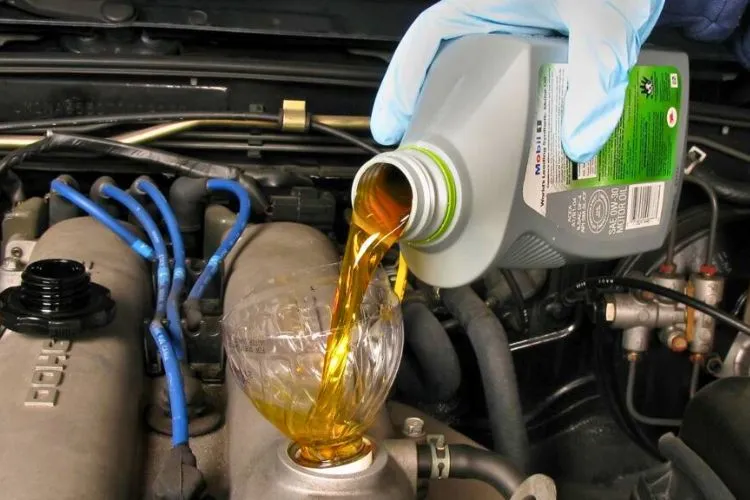
The Problem: Transmission fluid plays a vital role in ensuring smooth gear shifts and overall transmission performance. Low or old transmission fluid can cause inadequate lubrication and lead to increased friction between the transmission components, resulting in car shakes when reversing.
The Solution: Regularly check and maintain your vehicle’s transmission fluid levels to avoid potential shaking caused by low or degraded fluid. If necessary, flush and replace the fluid to ensure optimal performance and longevity of your transmission system.
Properly servicing your transmission fluid will contribute to smoother, trouble-free gear shifts, including reverse.
Torque Converter: Getting the Right Signal
The Problem: The torque converter is a crucial component of your vehicle’s transmission system, as it transfers power from the engine to the transmission.
A malfunctioning torque converter can lead to car shakes when reversing, as it may not engage or disengage properly, causing the transmission to struggle in transferring power during gear shifts.
The Solution: If you suspect an issue with the torque converter, seek the assistance of a professional mechanic to diagnose and repair the problem. Regularly monitoring your vehicle’s overall transmission performance can help identify and address torque converter-related issues before they escalate.
An Issue with EPC Solenoid: Regulating Pressure with Precision
The Problem: The EPC (Electronic Pressure Control) solenoid is a component responsible for regulating hydraulic pressure within your vehicle’s transmission system. A malfunctioning EPC solenoid can lead to improper pressure regulation, causing harsh shifting and car shakes when reversing.
The Solution: If you’re experiencing car shakes when reversing due to a potential EPC solenoid issue, it’s crucial to have a professional mechanic diagnose and repair the problem.
Keeping an eye on your transmission’s overall performance and scheduling regular transmission services will help prevent EPC solenoid-related issues from causing car shakes in reverse.
Issues with Car’s Engine: The Driving Force
The Problem: Issues with the car’s engine can also be a reason for car shaking when reversing. Any underlying problem, such as misfiring cylinders, worn piston rings, or a failing crankshaft, can cause the engine to vibrate excessively, ultimately leading to noticeable shaking.
The Solution: Proper engine maintenance is crucial to preventing engine-related issues that cause car shaking when reversing. Regular tune-ups, oil changes, and inspections by a professional mechanic will ensure your engine stays in good working order and minimize the risk of engine-related car shakes.
Problematic Clutch: A Shaky Connection
The Problem: A problematic clutch can contribute to car shakes when reversing, particularly in manual transmission vehicles. Worn-out clutch plates, a failing pressure plate, or a malfunctioning throw-out bearing can cause disengagement issues and result in noticeable vibrations when shifting gears.
The Solution: If you suspect a problematic clutch is causing your car to shake when reversing, consult a professional mechanic for diagnosis and repair.
Regular maintenance of your clutch system, including checking for wear and tear on the clutch plates and pressure plate, will help ensure smooth gear shifts and minimize car shaking when shifting into reverse.
Damaged Tires: A Bumpy Ride
The Problem: Damaged tires can also cause car shakes when reversing. Tires with uneven wear, imbalanced weight distribution, or internal damage can lead to vibrations that transfer to the entire vehicle, particularly when reversing at low speeds.
The Solution: Ensure your tires are properly maintained by regularly checking their inflation and condition. Rotate and balance your tires as needed to prevent uneven wear and imbalance. In case of internal tire damage, replace the affected tire(s) to maintain a smooth and safe driving experience.
Proper care of your tires will greatly reduce the possibility of car shaking when reversing due to tire issues.
Car shakes in first gear and reverse
Car shaking in first gear and reverse can be caused by several possible issues, such as:
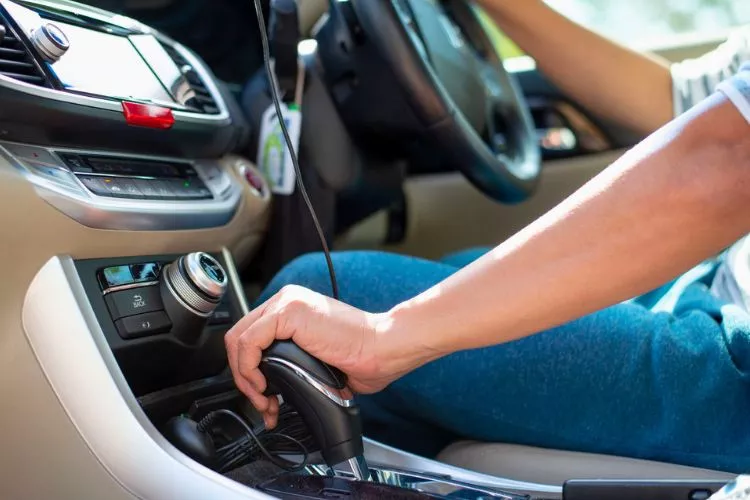
- Engine and transmission mounts – Damaged or worn-out engine or transmission mounts can cause excessive movement and vibrations when engaging first gear or reverse.
- Transmission fluid – Low, dirty, or leaky transmission fluid may lead to erratic gear shifts and cause shaking when shifting into first gear or reverse.
- Clutch in manual cars – A worn-out or faulty clutch can cause disengagement issues and result in noticeable vibrations when shifting into first gear or reverse.
- Suspension components – Incorrectly fitted suspension components may contribute to car shaking when engaging first gear or reverse.
- Damaged tires – Deformed, damaged, or worn-out tires can lead to car shaking when engaging first gear or reverse due to imbalances or internal damage.
- Torque converter – A malfunctioning torque converter in automatic cars can cause shaking when shifting into reverse or first gear due to improper engagement or disengagement.
To resolve these issues, you should:
- Have a professional mechanic inspect your engine and transmission mounts for any signs of damage or wear, and replace them if necessary.
- Check and maintain your transmission fluid levels, and replace the fluid if it’s dirty or degraded.
- Have the clutch in manual cars diagnosed and repaired by a mechanic if it’s worn out or damaged.
- Inspect and repair incorrectly fitted suspension components.
- Check the condition of your tires and replace them if they’re deformed, damaged, or worn out.
- Consult a mechanic if you suspect a malfunctioning torque converter, and have it repaired, if necessary.
By addressing these potential causes of car shaking in first gear and reverse, you can ensure a smoother driving experience and minimize the risk of further issues.
Toyota Corolla vibration in reverse

Possible reasons for Toyota Corolla vibration in reverse:
- Bad or worn engine mounts or transmission mounts can cause vibration when shifting to reverse or drive. To resolve this issue, it is recommended to use OEM/GENUINE parts for replacement.
- A rough idle may contribute to the vibration, which can be worse in drive and reverse but still present in park and neutral. Getting the idle properly diagnosed and fixed can help.
- A loose front axle on the right side might also cause a vibrating, grinding sound when the car is put in reverse. This issue can be resolved by tightening or replacing the axle as needed.
Please consult a professional mechanic for proper diagnosis and repair.
2017 Chevy Cruze vibration in reverse
Possible reasons for a 2017 Chevy Cruze vibration in reverse could include:
- Low transmission fluid: One user on Chevrolet Cruze Forums suggested that the loud vibration sound when the car goes into reverse could be due to low transmission fluid. Checking and topping up the transmission fluid as needed might help resolve this issue.
- Engine issues: An issue with the engine might be another contributing factor that causes vibrations. A misfire, for example, can cause a strong shaking or vibration. In this case, it would be best to have the engine serviced as soon as possible to avoid damaging the catalytic converter.
- Worn or damaged engine mounts: Similar to other cars, a 2017 Chevy Cruze might experience vibrations in reverse due to worn or damaged engine mounts. If this is the case, it would be wise to have the mounts inspected and replaced by a professional mechanic.
- Tire or wheel issues: Damaged or imbalanced tires and wheels may cause vibrations in reverse. Check your tires for damage, wear, or imbalance, and have them repaired or replaced as needed to ensure a smoother driving experience.
As always, it’s crucial to consult a professional mechanic for proper diagnosis and repair.
Things To Avoid When A Car Shakes or Shakes In Reverse
When your car shakes or vibrates in reverse, it is important to address the issue before it worsens or causes more damage. Here are some things you should avoid when your car is experiencing such problems:
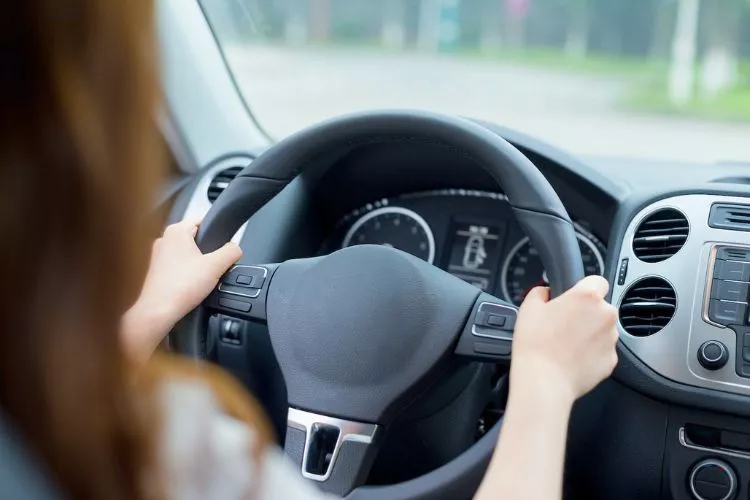
- Ignoring the problem: Do not dismiss the shaking or vibration as unimportant. Seek professional advice and have your car inspected to identify the root cause of the problem.
- Driving aggressively: Avoid rapid acceleration, hard braking, or aggressive maneuvers, as these can exacerbate the vibrations and place additional stress on the affected components.
- Delaying maintenance: Ensure regular maintenance is performed on your vehicle. Neglecting timely check-ups can lead to further complications down the line.
- Overloading your vehicle: Extra weight in your trunk or cargo area can put more strain on your suspension, exacerbating the shaking. Also, heavy loads in your vehicle can contribute to tire damage, which might further worsen the shaking issue.
- DIY repairs without proper knowledge: Automotive repairs can be complex, and attempting to fix the problem yourself without proper knowledge or tools might cause more harm than good. Always consult a professional mechanic to diagnose and repair your vehicle.
- Continuing to drive with bad tires: If your tires are damaged, unevenly worn, or imbalanced, continuing to drive can worsen the issue. Promptly address tire problems by repairing or replacing them as needed[^1^].
- Driving in a compromised vehicle: If you suspect the shaking is due to engine, transmission, or suspension issues, driving the car may worsen the issue or cause additional damage. Consider limiting your driving or using an alternative means of transportation until the issue is resolved.
Conclusion:
Various factors can contribute to a car shaking when reversing. Some of the common causes include:
- Worn-out or damaged transmission components
- Engine mount problems
- Braking system issues
- Uneven tire wear and alignment problems
- Failing or dirty fuel injectors
To ensure the safety and proper functioning of your vehicle, it is crucial to identify the root cause of the shaking and address the issue promptly.
Regular maintenance, inspection, and adherence to manufacturer guidelines can help prevent problems that lead to shaking when reversing.
Additionally, seeking professional assistance from a certified mechanic is always recommended when faced with such concerns to ensure a correct diagnosis and effective repair to prevent future issues.

